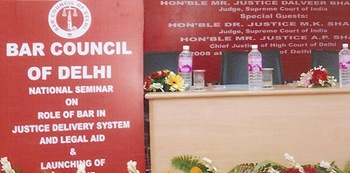
The special leave petition (SLP) was brought by Delhi advocate DK Sharma, who has been embroiled in a court battle with the BCD since July 2010 when he challenged Sareen’s co-option as being in violation of his own right to the BCD’s membership, in the Delhi High Court (HC).
After KK Sareen passed away in August 2010, the 24 remaining BCD members by majority vote co-opted Aman Sareen into the vacated spot for the 2009 to 2014 term. Sharma, who won the 26th-most votes in the December 2009 elections for this term, asserted that he should rightfully stake claim to the vacated 25th post.
In the absence of written rules for co-option, neither under the Advocates Act nor the Delhi bar council rules, Sharma relied on other state bar council rules favouring co-option on the basis of ranks in the preferential voting list.
However, the BCD had previously also co-opted members who had not contested the elections.
On 9 May 2011 a division bench of the Delhi HC upheld Sareen’s co-option to the BCD’s membership and on 20 May 2011 the Delhi government’s department of law published a notification announcing his co-option.
Sharma’s SLP against the government of NCT (National Capital Territory) of Delhi was admitted by justice RM Lodha on 11 February “to be listed for final hearing within one year” from that day.
Sharma told Legally India that the next hearing was expedited, and is expected within the next three months.
Aman Sareen declined to comment because the case was sub judice.